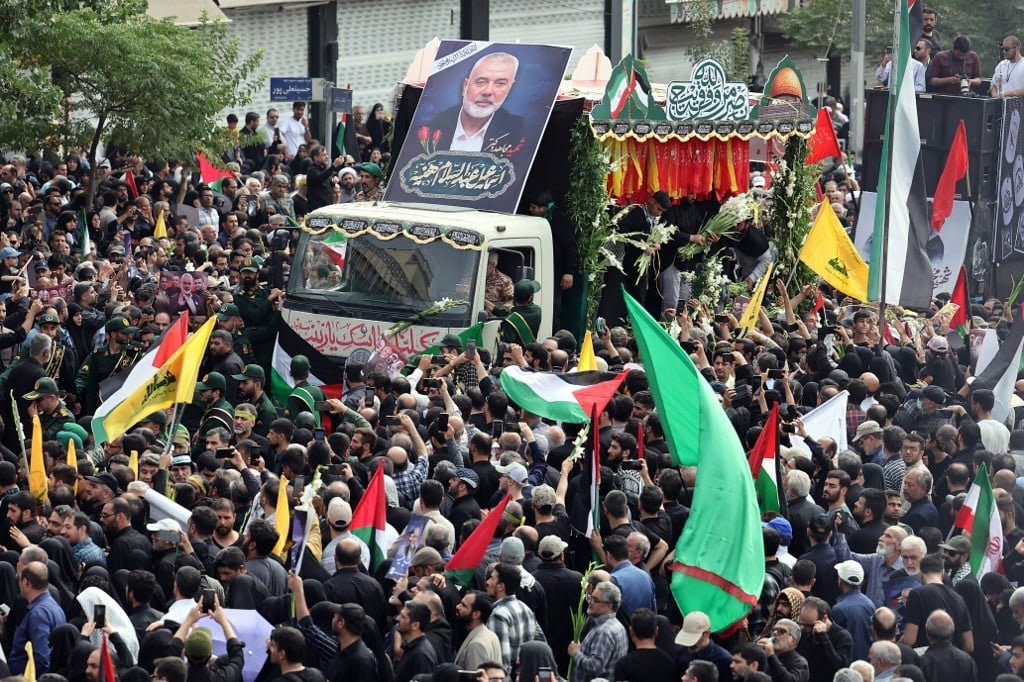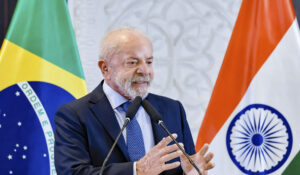
Posted 08/03/2024 01:18 | Edited 08/03/2024 01:19
The Israeli government is expected to send a delegation to Cairo, the capital of Egypt, in the coming days to resume negotiations for a ceasefire in the Gaza Strip, where the Israel Defense Forces (IDF) have already killed more than 38,000 Palestinians.
The diplomatic gesture comes days after Benjamin Netanyahu’s far-right government launched two “crushing” attacks, according to the prime minister, which have the potential to trigger a regional war of greater proportions and risks for the population of the Middle East.
On Wednesday (31), the political leader of Hamas, Ismail Haniyeh, one of the most important figures in the Palestinian resistance group, was killed in Tehran, the capital of Iran, after participating in the inauguration ceremony of the country’s new president, Masoud Pezeshkian.
Haniyeh was received as a head of state and was in the front row among the main authorities at the event.
According to an investigation by the British newspaper The Telegraph, agents of Mossad, Israel’s secret service, bribed two members of Iran’s Revolutionary Guard Corps (IRGC), responsible for planting the bombs in the residence where the Hamas leader was killed, in Tehran.
The two IRGC operatives fled Iran after planting the bombs, and detonated them from abroad.
The assassination attempt on Haniyeh’s life in Tehran came less than 12 hours after a precision airstrike killed Fuad Shukr in Beirut, the Lebanese capital. Fuad was considered the number two in Hezbollah, an Islamist group that operates in the country on Israel’s northern border.
This Friday (2), Hezbollah carried out its first reaction to the attack on Shukr by launching around 60 rockets from southern Lebanon towards Western Galilee, northern Israel.
According to the Israeli army, 15 of them were intercepted in an attack considered to be of minor proportions, a small demonstration of what Iran and the so-called Axis of Resistance (Muslim armed groups, financed by the Persians) will unleash in the coming days in response to the two Israeli attacks.
Despite the call for diplomacy, launched by Tel Aviv, a climate of hostility has already been unleashed in the Middle East, both among political leaders and among the population of countries with an Arab majority.
In Iran, while Iran’s supreme leader, Ayatollah Ali Khamenei, publicly promised severe punishment to Israel for the death of the “dear guest”, a crowd took to the streets in Tehran, this Friday (2), to bid farewell to Haniyeh.
Khamenei himself attended the funeral and prayed over the coffin of the Palestinian resistance leader. Haniyeh’s funeral was also attended by representatives of various Palestinian factions, diaspora groups, diplomats and citizens of many countries.
Later on Friday, he was buried in the royal cemetery in Lusail, north of the capital Doha, Qatar. Symbolic funerals were held for the Palestinian leader in several Muslim countries, including Yemen, Jordan, Lebanon and Turkey.
The tension and risk of a regional war breaking out is so great that it has forced the United States, Israel’s biggest partner, to act to contain the anonymity between the parties and to dissuade Iran from a large-scale offensive.
Also last Thursday (1st), President Joe Biden said that the assassination does not help Israel reach a ceasefire in the war in Gaza. “It does not help,” Biden told reporters on Thursday night.
The public scolding of Netanyahu, however, ended there, as the Pentagon announced the deployment of the aircraft carrier USS Abraham Lincoln, destroyers and cruisers with anti-missile capabilities.
Israel has also been reinforced with an additional squadron of American fighter jets to neutralize the Iranian response through a heightened defense mechanism.
Source: vermelho.org.br

